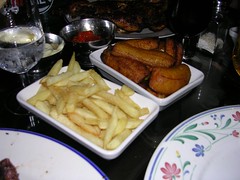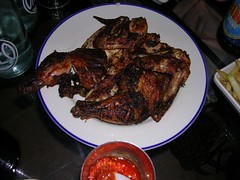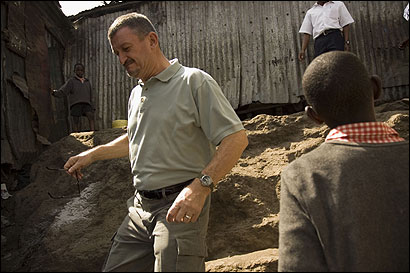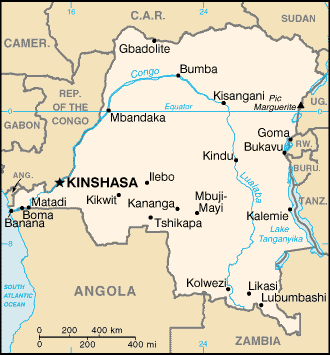Flying the Friendly Skies
African aeroplanes labelled 'flying coffins'
The link above is a dramatically written story in English that follows up on an article from La Tribune emailed to me by a colleague in Kinshasa last week.
The substance of the French article, for which I do not have online access, was an announcement of airlines banned from flying over Europe (which will not affect flights within Africa or within national boundaries). The list includes African, Asian, and Middle Eastern countries.
Of the 92 banned airlines, 55% are Congolese:
CORÉE DU NORD : Air Koryo.
COMORES : Air Service Comores
AFGHANISTAN : Ariana Afghan Airlines
KAZAKHSTAN : BGB Airlines, GST Aero Air Company.
KIRGHIZISTAN : Phoenix Aviation, Reem Air.
THAÏLANDE : Phuket Airlines.
RWANDA : Silverback Cargo Freighters.
RÉPUBLIQUE DÉMOCRATIQUE DU CONGO : Africa One, African Company Airlines, Aigle Aviation, Air Boyoma, Air Kasai, Air Navette, Air Tropiques, ATO (Air Transport Office), Blue Airlines, Business Aviation, Butembo Airlines, CAA, Cargo Bull Aviation, Central Air Express, Cetraca Aviation Service, CHC Stelavia, Comair, Compagnie Africaine d’Aviation, CO-ZA Airways, DAS Airlines, Doren AirCargo, Enterprise World Airways, Filair, Free Airlines, Galaxy Corporation, GR Airways, Global Airways, Goma Express, Great Lake Business Company, ITAB (International Trans Air Business), Jetair (Jet Aero Services), Kinshasa Airways, Kivu Air, LAC (Lignes Aériennes Congolaises), Malu Aviation, Malila Airlift, Mango Mat, Rwabika Bushi Express, Safari Logistics, Services Air, Tembo Air Services, Thom’s Airways, TMK Air Commuter, Tracep, Trans Air Cargo Services, Transports Aeriennes Congolais (Traco), Uhuru Airlines, Virunga Air Charter, Waltair Aviation, Wimbi Diri Airways.
GUINÉE ÉQUATORIALE : Air Consul SA, Avirex Guinee Equatoriale, Coage (Compagnie Aeree de Guinee Equatoriale), Ecuato Guineana de Aviacion, Ecuatorial Cargo, GEASA (Guinea Ecuatorial Airlines SA), Getra, Jetline Inc, KNG Transavia Cargo, Prompt Air GE-SA, Utage (Union de Transport Aereo de Guinea Ecuatorial).
LIBERIA : International Air Services, Satgur Air Transport, Weasua Air Transport.
SIERRA LEONE : Aerolift, Afrik Air Links, Air Leone, Air Rum, Air Salone, Air Universal, Destiny Air Services, First Line Air, Heavylift Cargo, Paramount Airlines, Star Air, Teebah Airways, West Coast Airways.
SWAZILAND : Aftrican International Airways, Airlink Swaziland, Jet Africa, Northeast Airlines, Scan air Charter, Swazi Express Airways
The scary thing is, I haven't heard of over half of the Congolese airlines, and of the others, my colleagues in Kinshasa have used a minimum of four, and I have traveled on two of them (if you count Hewa Bora, which 007 In Africa reports to be on the list of airlines banned from flying certain types of aircraft, then it is three). Up until now, I think my former agency banned travel on all except one, which may now be added to the list.
Even when I traveled with MONUC, the UN mission in DR Congo, I flew in a 1970s model Russian helicopter for 2.5 or more hours, to a destination that takes less than an hour on a regular passenger plane.

And, for some reason, aid workers are expected to take these risks, and do take these risks.
A colleague from Senegal refused to get on a flight at one point, after his baggage had been loaded and everything. He saw the aircraft out on the tarmac, turned around, and got a ride back to the office.
It is such a dilemma -- work is interrupted when we make decisions like that, but no work is worth risking one's life, right?
And, there seems to be this expectation of single folks to take risks that others wouldn't...Is the life of an aid worker (or anyone else) without a family more dispensable than one with a family?









